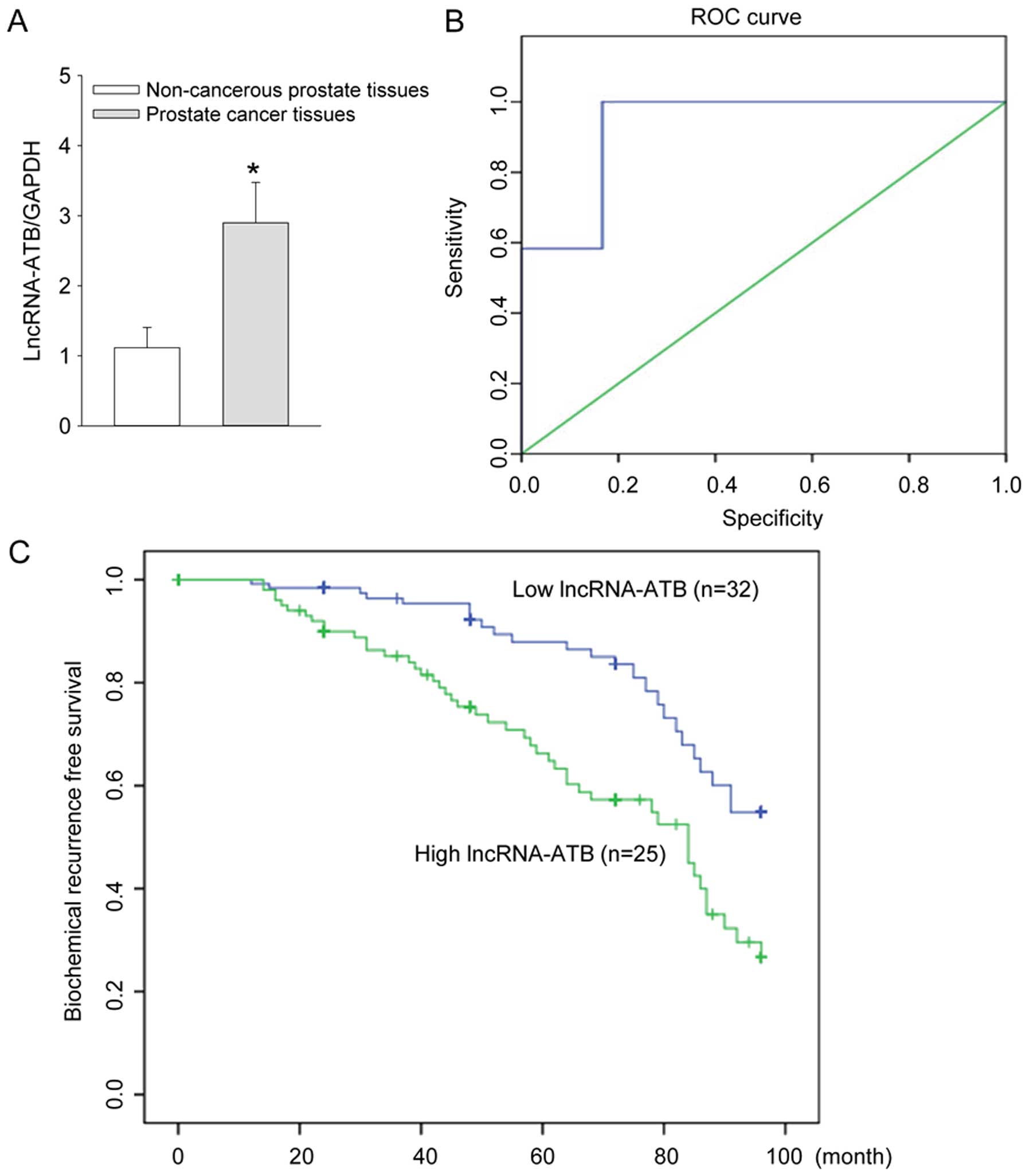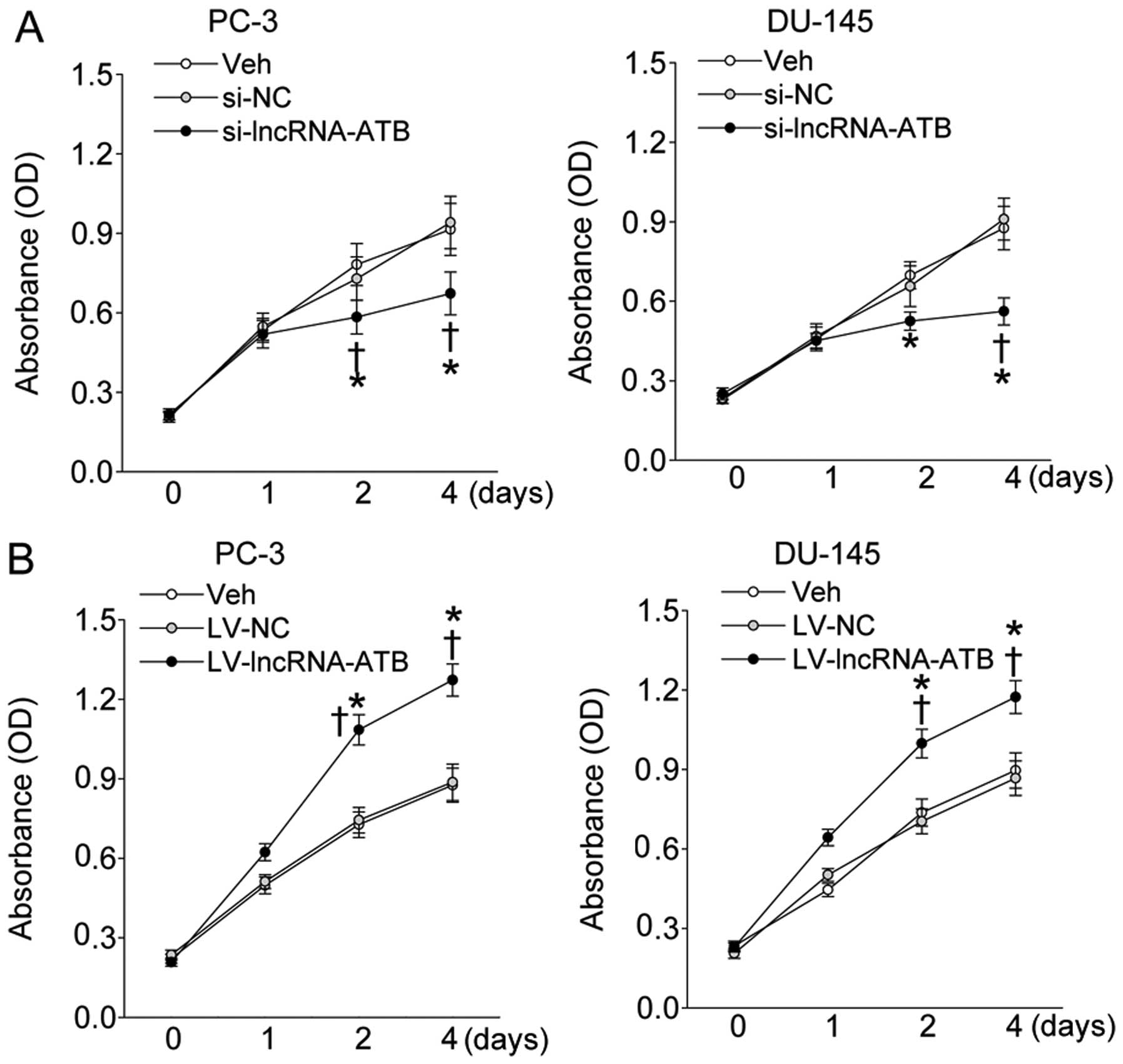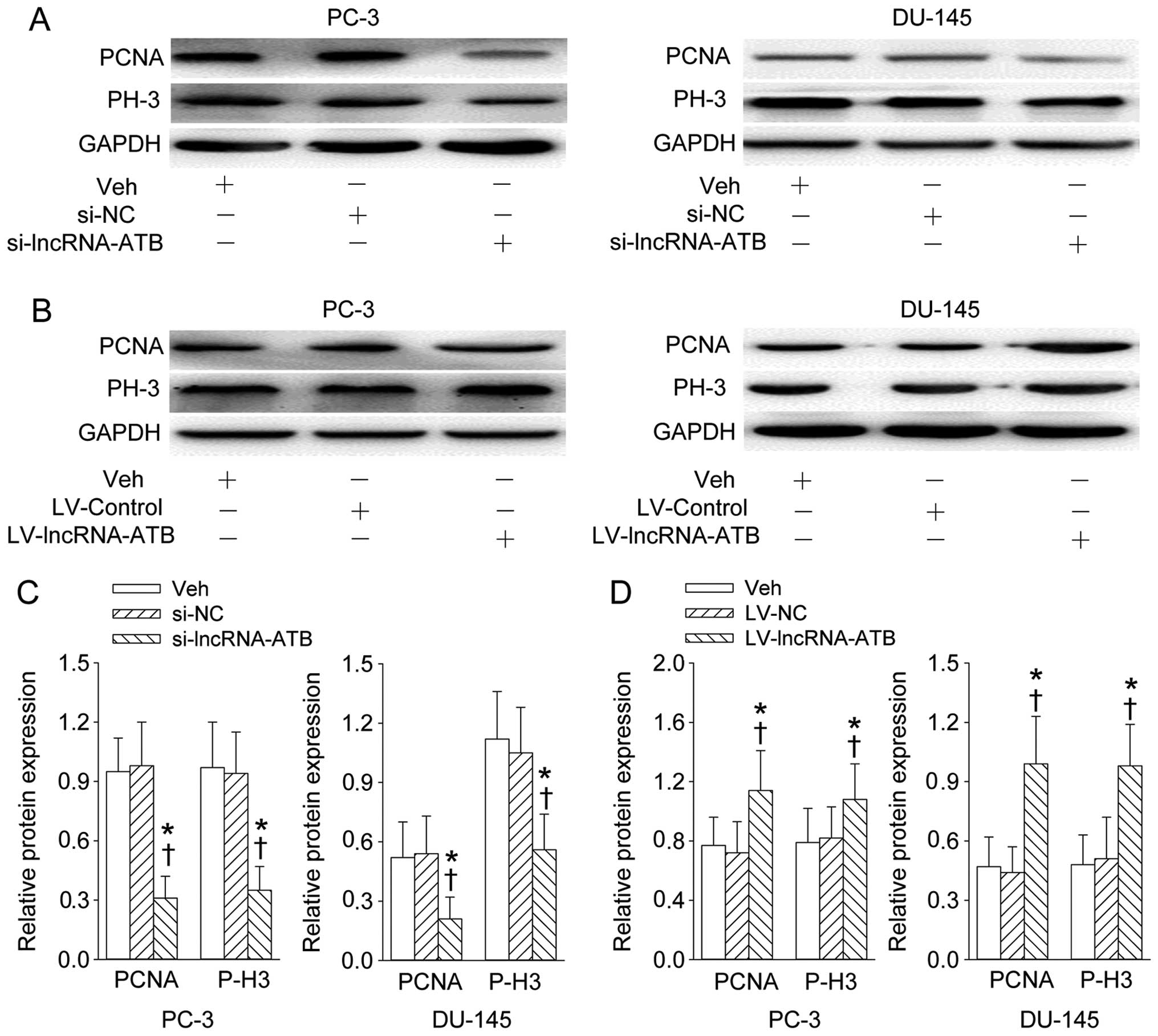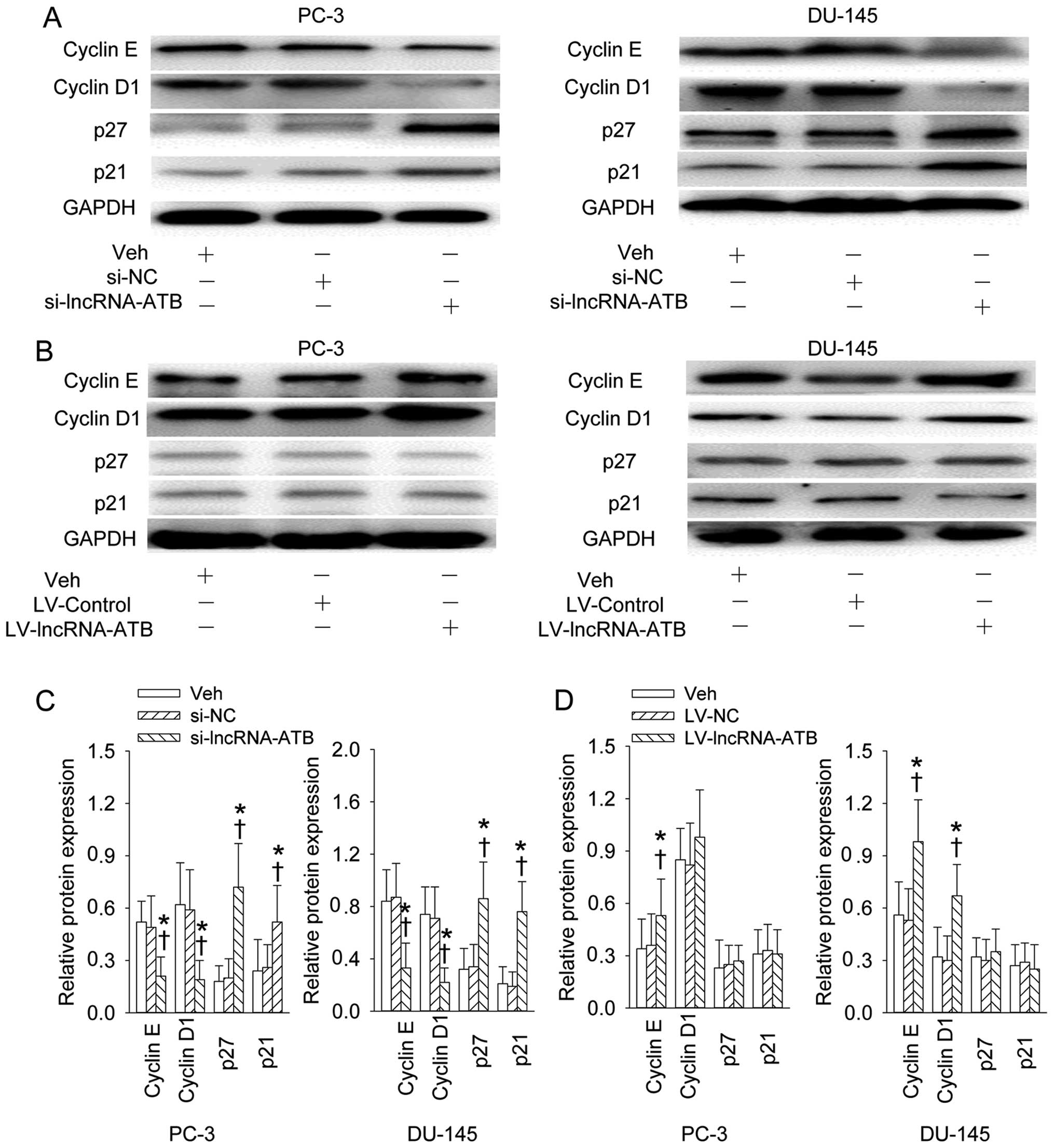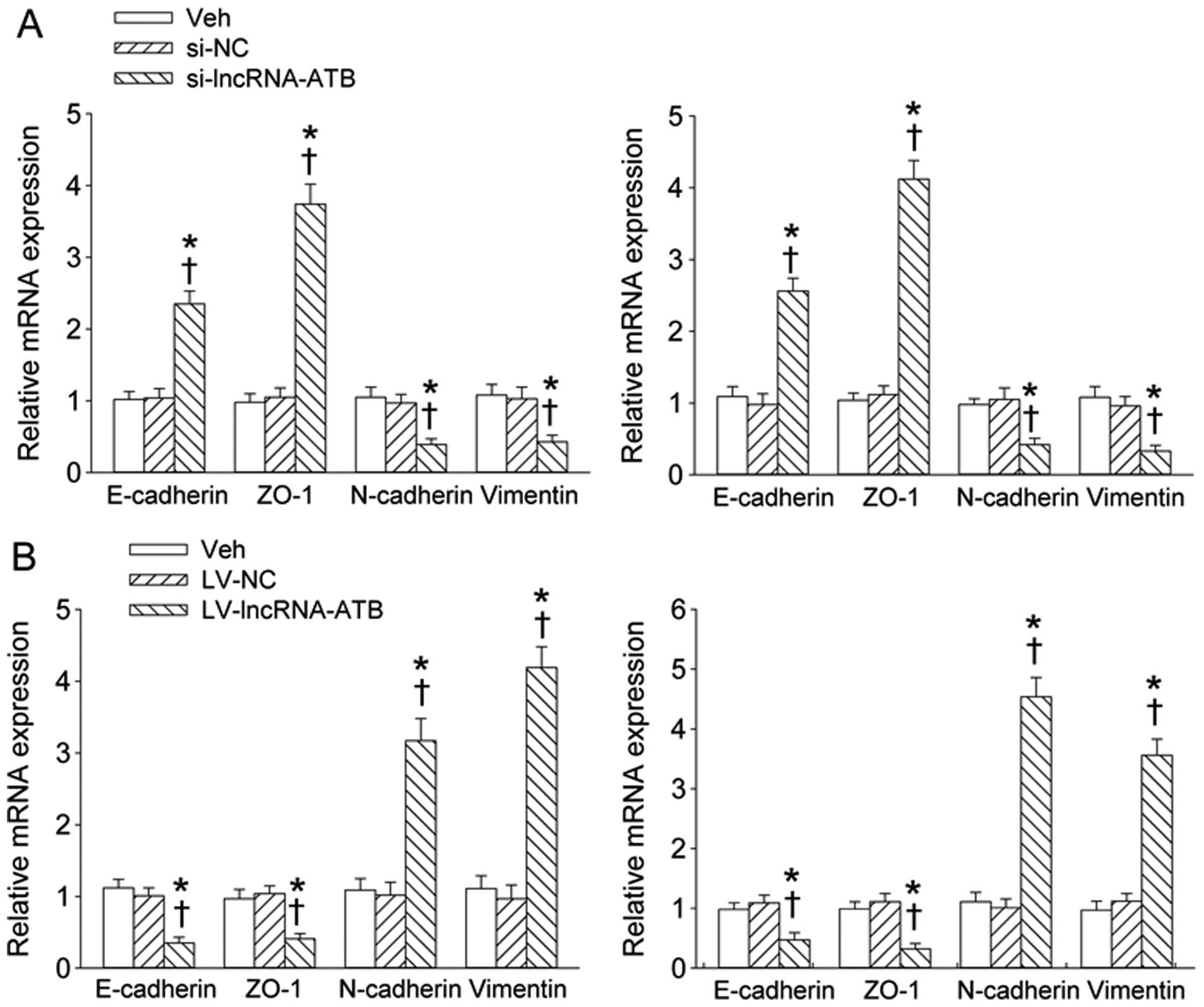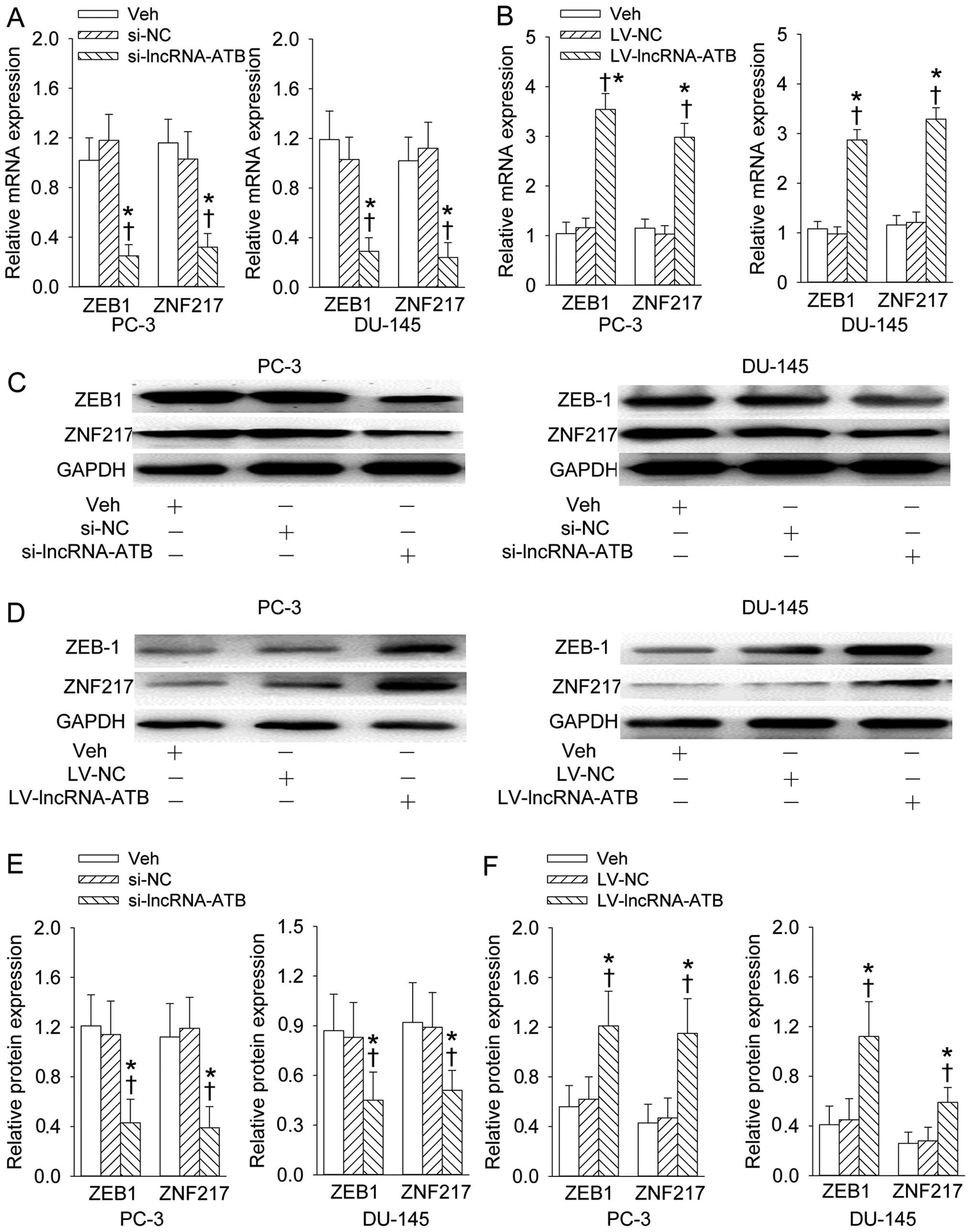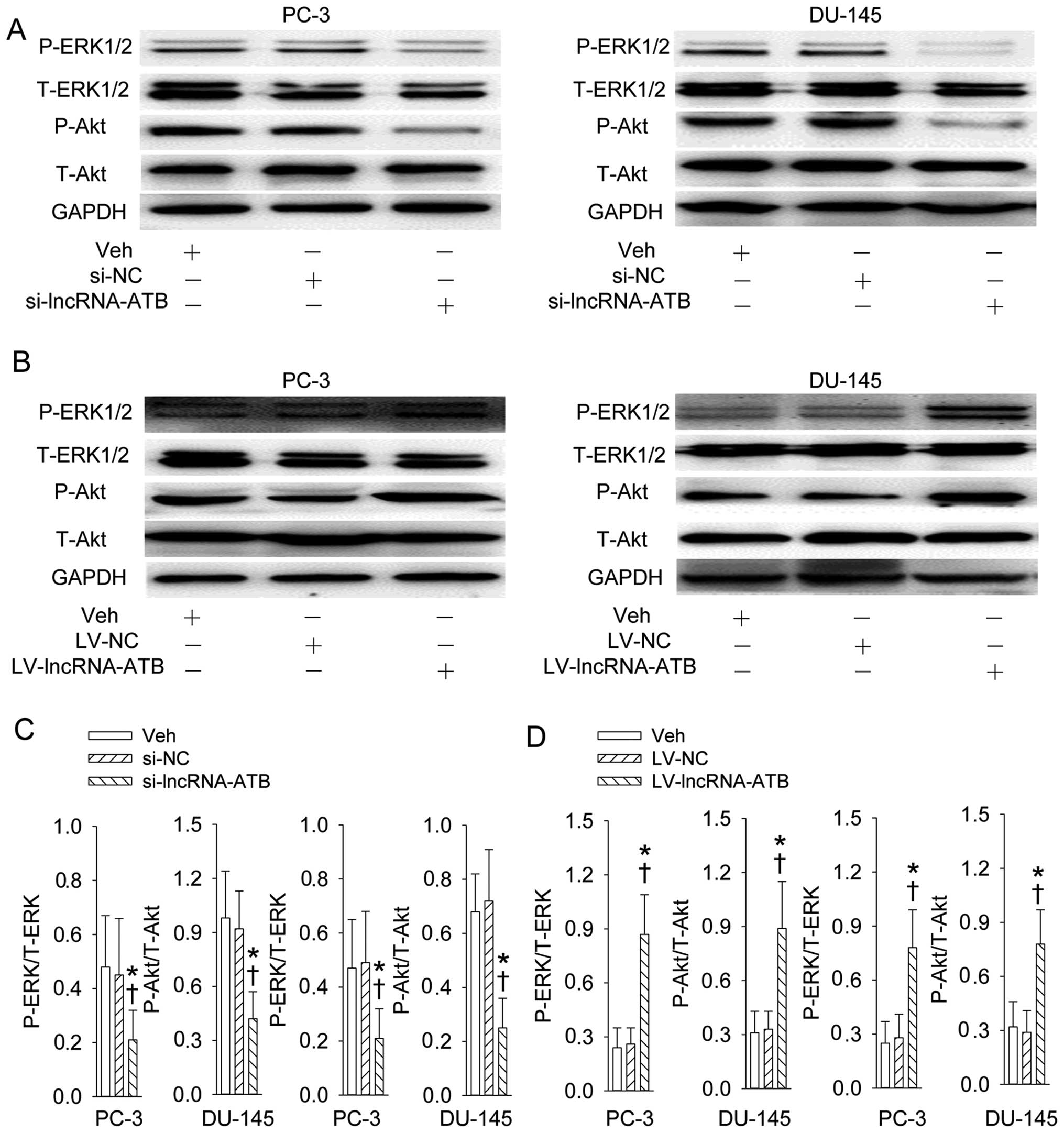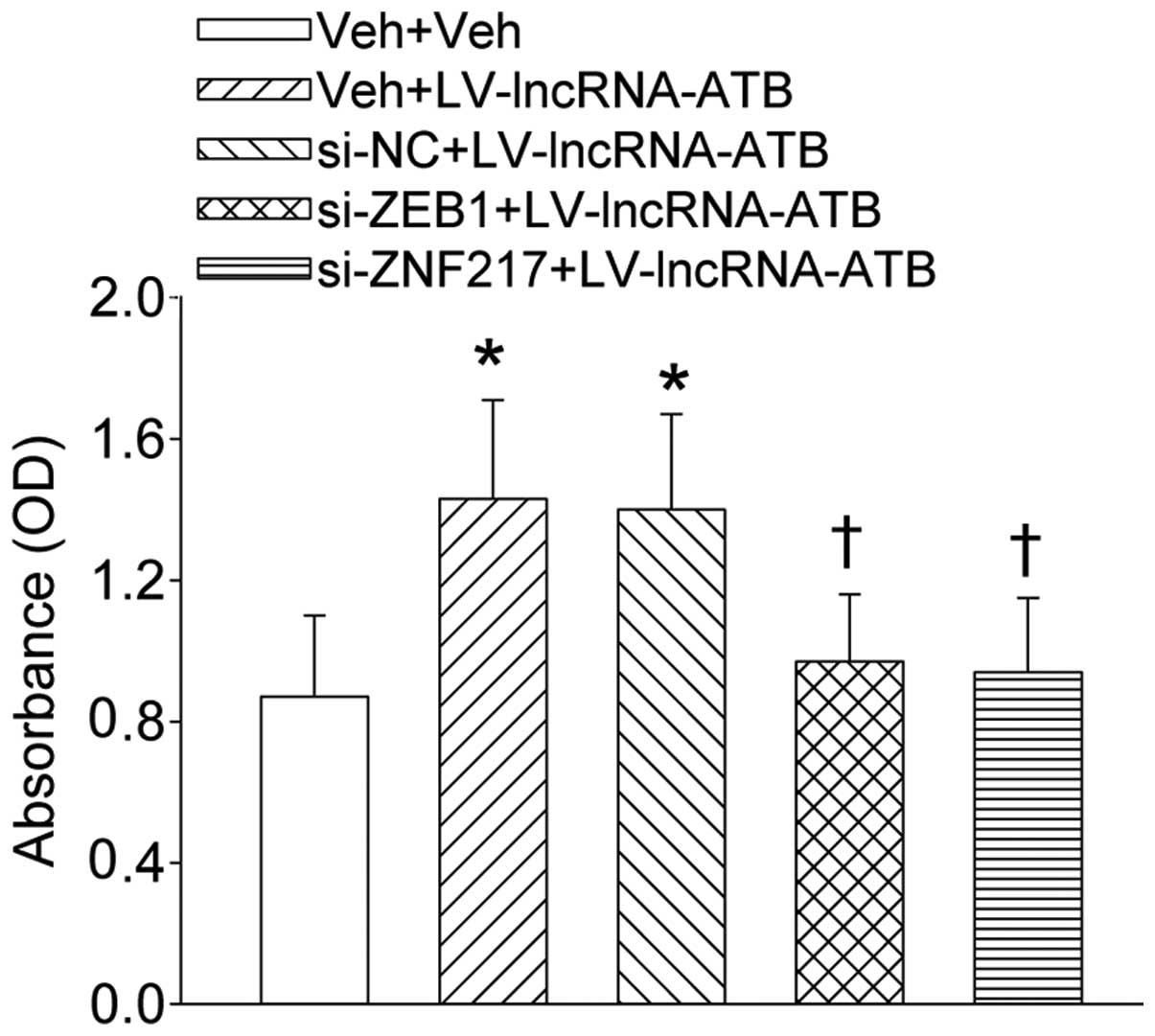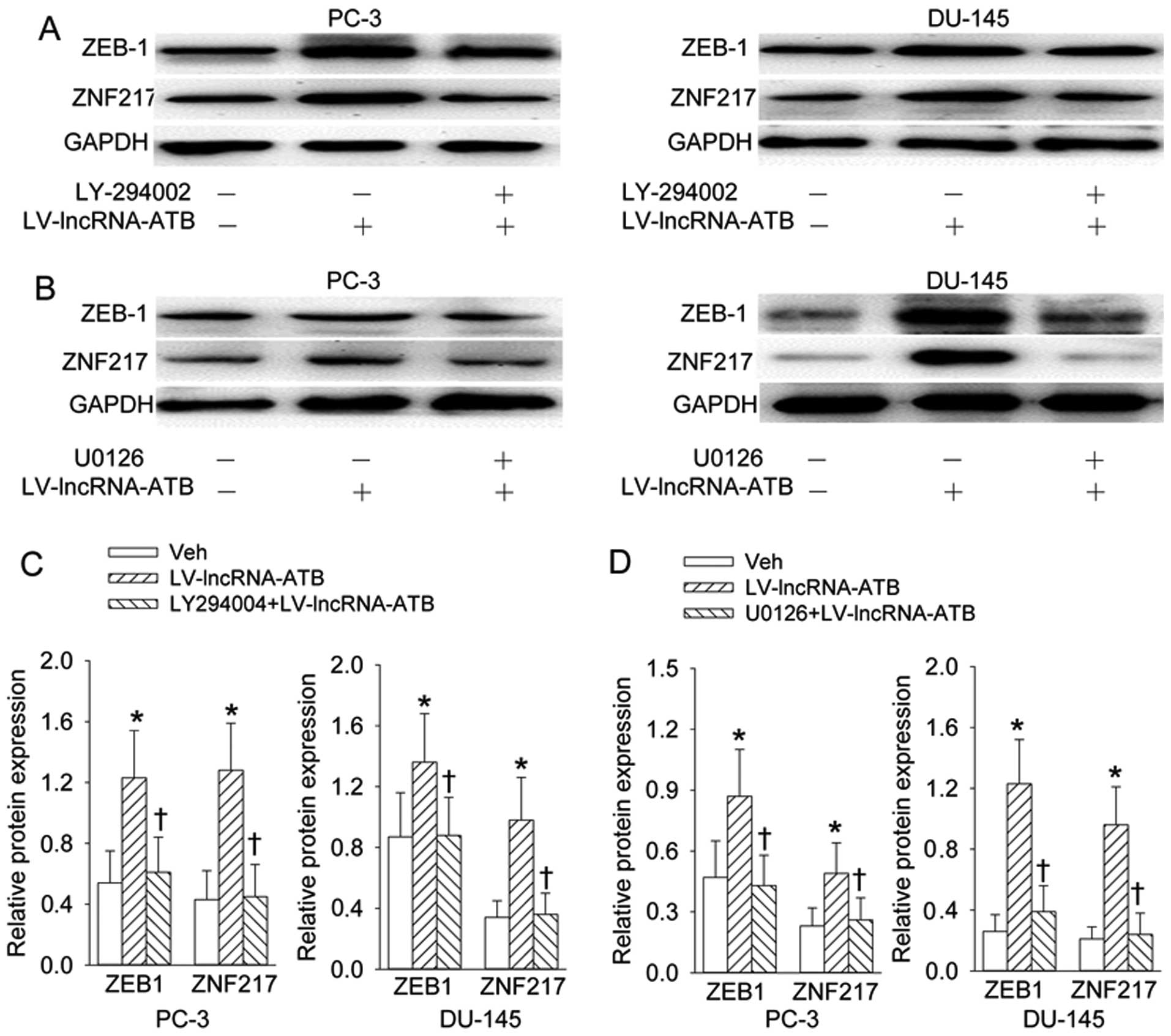|
1
|
Scher HI, Solo K, Valant J, Todd MB and
Mehra M: Prevalence of Prostate Cancer Clinical States and
Mortality in the United States: Estimates Using a Dynamic
Progression Model. PLoS One. 10:e01394402015. View Article : Google Scholar : PubMed/NCBI
|
|
2
|
Ferlay J, Soerjomataram I, Dikshit R, Eser
S, Mathers C, Rebelo M, Parkin DM, Forman D and Bray F: Cancer
incidence and mortality worldwide: sources, methods and major
patterns in GLOBOCAN 2012. Int J Cancer. 136:E359–E386. 2015.
View Article : Google Scholar
|
|
3
|
Jung KW, Won YJ, Kong HJ, Oh CM, Cho H,
Lee DH and Lee KH: Cancer statistics in Korea: Incidence,
mortality, survival, and prevalence in 2012. Cancer Res Treat.
47:127–141. 2015. View Article : Google Scholar : PubMed/NCBI
|
|
4
|
Carroll PR: Early stage prostate cancer -
do we have a problem with over-detection, overtreatment or both? J
Urol. 173:1061–1062. 2005. View Article : Google Scholar : PubMed/NCBI
|
|
5
|
Ishizaki F, Hara N, Koike H, Kawaguchi M,
Tadokoro A, Takizawa I, Nishiyama T, Takahashi K and Hohenfellner
R: Prediction of pathological and oncological outcomes based on
extended prostate biopsy results in patients with prostate cancer
receiving radical prostatectomy: A single institution study. Diagn
Pathol. 7:682012. View Article : Google Scholar : PubMed/NCBI
|
|
6
|
Lopes PM, Sepúlveda L, Ramos R and Sousa
P: The role of transrectal ultrasound in the diagnosis of prostate
cancer: New contributions. Radiol Bras. 48:7–11. 2015. View Article : Google Scholar : PubMed/NCBI
|
|
7
|
Ilic D, O'Connor D, Green S and Wilt T:
Screening for prostate cancer: A Cochrane systematic review. Cancer
Causes Control. 18:279–285. 2007. View Article : Google Scholar : PubMed/NCBI
|
|
8
|
Pritchard CC, Morrissey C, Kumar A, Zhang
X, Smith C, Coleman I, Salipante SJ, Milbank J, Yu M, Grady WM, et
al: Complex MSH2 and MSH6 mutations in hypermutated micro-satellite
unstable advanced prostate cancer. Nat Commun. 5:49882014.
View Article : Google Scholar
|
|
9
|
Merdan S, Womble PR, Miller DC, Barnett C,
Ye Z, Linsell SM, Montie JE and Denton BT: Toward better use of
bone scans among men with early-stage prostate cancer. Urology.
84:793–798. 2014. View Article : Google Scholar : PubMed/NCBI
|
|
10
|
Morgia G, Russo GI, Tubaro A, Bortolus R,
Randone D, Gabriele P, Trippa F, Zattoni F, Porena M, Mirone V, et
al Members of the LUNA Foundation; Società Italiana d'Urologia:
Patterns of prescription and adherence to European Association of
Urology guidelines on androgen deprivation therapy in prostate
cancer: An Italian multicentre cross-sectional analysis from the
Choosing Treatment for Prostate Cancer (CHOICE) study. BJU Int. Aug
31–2015.Epub ahead of print. PubMed/NCBI
|
|
11
|
Albertsen PC: The unintended burden of
increased prostate cancer detection associated with prostate cancer
screening and diagnosis. Urology. 75:399–405. 2010. View Article : Google Scholar
|
|
12
|
Martin NE and D'Amico AV: Progress and
controversies: Radiation therapy for prostate cancer. CA Cancer J
Clin. 64:389–407. 2014. View Article : Google Scholar : PubMed/NCBI
|
|
13
|
Moyer VA; U.S. Preventive Services Task
Force: Screening for prostate cancer: U.S. Preventive Services Task
Force recommendation statement. Ann Intern Med. 157:120–134. 2012.
View Article : Google Scholar : PubMed/NCBI
|
|
14
|
Shi X, Sun M, Liu H, Yao Y and Song Y:
Long non-coding RNAs: A new frontier in the study of human
diseases. Cancer Lett. 339:159–166. 2013. View Article : Google Scholar : PubMed/NCBI
|
|
15
|
Li CH and Chen Y: Targeting long
non-coding RNAs in cancers: Progress and prospects. Int J Biochem
Cell Biol. 45:1895–1910. 2013. View Article : Google Scholar : PubMed/NCBI
|
|
16
|
Wang KC, Yang YW, Liu B, Sanyal A,
Corces-Zimmerman R, Chen Y, Lajoie BR, Protacio A, Flynn RA, Gupta
RA, et al: A long noncoding RNA maintains active chromatin to
coordinate homeotic gene expression. Nature. 472:120–124. 2011.
View Article : Google Scholar : PubMed/NCBI
|
|
17
|
Liu Y, Zhang M, Liang L, Li J and Chen YX:
Over-expression of lncRNA DANCR is associated with advanced tumor
progression and poor prognosis in patients with colorectal cancer.
Int J Clin Exp Pathol. 8:11480–11484. 2015.PubMed/NCBI
|
|
18
|
Quagliata L, Matter MS, Piscuoglio S,
Arabi L, Ruiz C, Procino A, Kovac M, Moretti F, Makowska Z,
Boldanova T, et al: Long noncoding RNA HOTTIP/HOXA13 expression is
associated with disease progression and predicts outcome in
hepatocellular carcinoma patients. Hepatology. 59:911–923. 2014.
View Article : Google Scholar :
|
|
19
|
Ji J, Tang J, Deng L, Xie Y, Jiang R, Li G
and Sun B: LINC00152 promotes proliferation in hepatocellular
carcinoma by targeting EpCAM via the mTOR signaling pathway.
Oncotarget. 6:42813–42824. 2015.PubMed/NCBI
|
|
20
|
Yuan JH, Yang F, Wang F, Ma JZ, Guo YJ,
Tao QF, Liu F, Pan W, Wang TT, Zhou CC, et al: A long noncoding RNA
activated by TGF-β promotes the invasion-metastasis cascade in
hepatocellular carcinoma. Cancer Cell. 25:666–681. 2014. View Article : Google Scholar : PubMed/NCBI
|
|
21
|
Sun HJ, Liu TY, Zhang F, Xiong XQ, Wang
JJ, Chen Q, Li YH, Kang YM, Zhou YB, Han Y, et al: Salusin-β
contributes to vascular remodeling associated with hypertension via
promoting vascular smooth muscle cell proliferation and vascular
fibrosis. Biochim Biophys Acta. 1852:1709–1718. 2015. View Article : Google Scholar : PubMed/NCBI
|
|
22
|
Wang H, Gao X, Lu X, Wang Y, Ma C, Shi Z,
Zhu F, He B, Xu C and Sun Y: The mitotic regulator Hec1 is a
critical modulator of prostate cancer through the long non-coding
RNA BX647187 in vitro. Biosci Rep. 35:352015. View Article : Google Scholar
|
|
23
|
Zhang C, Liu Z, Wang L, Qiao B, Du E, Li
L, Xu Y and Zhang Z: Prognostic significance of GPC5 expression in
patients with prostate cancer. Tumour Biol. Dec 2–2015.Epub ahead
of print.
|
|
24
|
Ma C, Shi X, Zhu Q, Li Q, Liu Y, Yao Y and
Song Y: The growth arrest-specific transcript 5 (gAS5): a pivotal
tumor suppressor long noncoding RNA in human cancers. Tumour Biol.
Dec 3–2015.Epub ahead of print.
|
|
25
|
Mapelli P and Picchio M: Initial prostate
cancer diagnosis and disease staging - the role of choline-PET-CT.
Nat Rev Urol. 12:510–518. 2015. View Article : Google Scholar : PubMed/NCBI
|
|
26
|
Degirmenci M, Erdogan AP, Bulut G, Atmaca
H, Uzunoglu S, Karaca B, Karabulut B and Uslu R: Octreotide in
combination with AT-101 induces cytotoxicity and apoptosis through
up-regulation of somatostatin receptors 2 and 5 in DU-145 prostate
cancer cells. Tumour Biol. Nov 3–2015.Epub ahead of print.
PubMed/NCBI
|
|
27
|
Walsh AL, Tuzova AV, Bolton EM, Lynch TH
and Perry AS: Long noncoding RNAs and prostate carcinogenesis: The
missing 'linc'? Trends Mol Med. 20:428–436. 2014. View Article : Google Scholar : PubMed/NCBI
|
|
28
|
Prensner JR and Chinnaiyan AM: The
emergence of lncRNAs in cancer biology. Cancer Discov. 1:391–407.
2011. View Article : Google Scholar : PubMed/NCBI
|
|
29
|
Enfield KS, Pikor LA, Martinez VD and Lam
WL: Mechanistic roles of noncoding RNAs in lung cancer biology and
their clinical implications. Genet Res Int.
2012:7374162012.PubMed/NCBI
|
|
30
|
Zheng HT, Shi DB, Wang YW, Li XX, Xu Y,
Tripathi P, Gu WL, Cai GX and Cai SJ: High expression of lncRNA
MALAT1 suggests a biomarker of poor prognosis in colorectal cancer.
Int J Clin Exp Pathol. 7:3174–3181. 2014.PubMed/NCBI
|
|
31
|
Svoboda M, Slyskova J, Schneiderova M,
Makovicky P, Bielik L, Levy M, Lipska L, Hemmelova B, Kala Z,
Protivankova M, et al: HOTAIR long non-coding RNA is a negative
prognostic factor not only in primary tumors, but also in the blood
of colorectal cancer patients. Carcinogenesis. 35:1510–1515. 2014.
View Article : Google Scholar : PubMed/NCBI
|
|
32
|
Zhao T, Xu J, Liu L, Bai J, Xu C, Xiao Y,
Li X and Zhang L: Identification of cancer-related lncRNAs through
integrating genome, regulome and transcriptome features. Mol
Biosyst. 11:126–136. 2015. View Article : Google Scholar
|
|
33
|
Salameh A, Lee AK, Cardó-Vila M, Nunes DN,
Efstathiou E, Staquicini FI, Dobroff AS, Marchiò S, Navone NM,
Hosoya H, et al: PRUNE2 is a human prostate cancer suppressor
regulated by the intronic long noncoding RNA PCA3. Proc Natl Acad
Sci USA. 112:8403–8408. 2015. View Article : Google Scholar : PubMed/NCBI
|
|
34
|
Saito T, Kurashige J, Nambara S, Komatsu
H, Hirata H, Ueda M, Sakimura S, Uchi R, Takano Y, Shinden Y, et
al: A long non-coding RNA activated by transforming growth factor-β
is an independent prognostic marker of gastric cancer. Ann Surg
Oncol. 22(Suppl 3): S915–S922. 2015. View Article : Google Scholar
|
|
35
|
Lei B, Xu SP, Liang XS, Li YW, Zhang JF,
Zhang GQ and Pang D: Long non-coding RNA MVIH is associated with
poor prognosis and malignant biological behavior in breast cancer.
Tumour Biol. Nov 10–2015.Epub ahead of print.
|
|
36
|
Zhang E, Li W, Yin D, De W, Sun S and Han
L: c-Myc-regulated long non-coding RNA H19 indicates a poor
prognosis and affects cell proliferation in non-small-cell lung
cancer. Tumour Biol. Oct 20–2015.Epub ahead of print.
|
|
37
|
Zeng XX, Chu TJ, Yuan JY, Zhang W, Du YM,
Ban ZY, Lei DM, Cao J and Zhang Z: Transmembrane 7 superfamily
member 4 regulates cell cycle progression in breast cancer cells.
Eur Rev Med Pharmacol Sci. 19:4353–4361. 2015.PubMed/NCBI
|
|
38
|
Yang L, Qiu M, Xu Y, Wang J, Zheng Y, Li
M, Xu L and Yin R: Upregulation of long non-coding RNA PRNCR1 in
colorectal cancer promotes cell proliferation and cell cycle
progression. Oncol Rep. 35:318–324. 2016.
|
|
39
|
Emadi Baygi M, Soheili ZS, Essmann F,
Deezagi A, Engers R, Goering W and Schulz WA: Slug/SNAI2 regulates
cell proliferation and invasiveness of metastatic prostate cancer
cell lines. Tumour Biol. 31:297–307. 2010. View Article : Google Scholar : PubMed/NCBI
|
|
40
|
Li P, Yang R and Gao WQ: Contributions of
epithelial-mesenchymal transition and cancer stem cells to the
development of castration resistance of prostate cancer. Mol
Cancer. 13:552014. View Article : Google Scholar : PubMed/NCBI
|
|
41
|
Gregory PA, Bert AG, Paterson EL, Barry
SC, Tsykin A, Farshid G, Vadas MA, Khew-Goodall Y and Goodall GJ:
The miR-200 family and miR-205 regulate epithelial to mesenchymal
transition by targeting ZEB1 and SIP1. Nat Cell Biol. 10:593–601.
2008. View
Article : Google Scholar : PubMed/NCBI
|
|
42
|
Vendrell JA, Thollet A, Nguyen NT, Ghayad
SE, Vinot S, Bièche I, Grisard E, Josserand V, Coll JL, Roux P, et
al: ZNF217 is a marker of poor prognosis in breast cancer that
drives epithelial-mesenchymal transition and invasion. Cancer Res.
72:3593–3606. 2012. View Article : Google Scholar : PubMed/NCBI
|
|
43
|
Bai WD, Ye XM, Zhang MY, Zhu HY, Xi WJ,
Huang X, Zhao J, Gu B, Zheng GX, Yang AG, et al: MiR-200c
suppresses TGF-β signaling and counteracts trastuzumab resistance
and metastasis by targeting ZNF217 and ZEB1 in breast cancer. Int J
Cancer. 135:1356–1368. 2014. View Article : Google Scholar : PubMed/NCBI
|
|
44
|
Lui GY, Kovacevic Z, Richardson V, Merlot
AM, Kalinowski DS and Richardson DR: Targeting cancer by binding
iron: Dissecting cellular signaling pathways. Oncotarget.
6:18748–18779. 2015. View Article : Google Scholar : PubMed/NCBI
|















